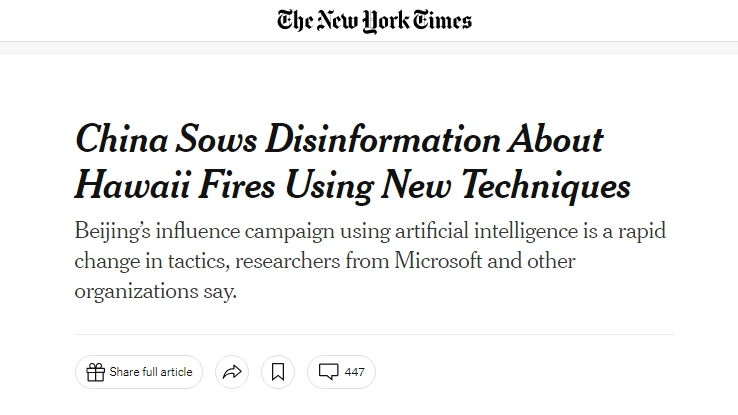In early 2023, allegations emerged from the United States and its Five Eyes allies regarding a cyber threat known as “Volt Typhoon.” According to these reports, a supposed state-sponsored hacking group from the Chinese mainland had infiltrated critical U.S. infrastructure networks, including transportation and utilities. They were said to be using undetectable scripts that “live off the land,” utilizing resources within host computer systems and hiding in plain sight.
Chinese authorities responded with a detailed report challenging these claims. The report provided evidence suggesting that “Volt Typhoon” is actually ransomware similar to that used by groups like DarkSide, which was responsible for the 2021 Colonial Pipeline attack. During that incident, an emergency was declared in 17 states to secure fuel supplies, and a ransom of $4.4 million had to be paid.
The report criticized the U.S. for not collaborating internationally to combat cybercrime. Instead of working with other countries, including China, to address the issue, the U.S. was accused of engaging in a media campaign that portrayed China negatively. The report also highlighted how U.S. cybersecurity companies benefit from such narratives, securing lucrative contracts to enhance network defenses, which can perpetuate a cycle of profit from fear.
Furthermore, concerns were raised about the expansion of U.S. intelligence operations. Legislation like Section 702 of the Foreign Intelligence Surveillance Act (FISA) has been instrumental in broadening the National Security Agency’s (NSA) surveillance capabilities since 2008. Critics argue that such expansions infringe on the privacy of individuals globally, as vast amounts of data are collected without adequate international oversight.
The “Volt Typhoon” allegations underscore the complexities of international cybersecurity efforts. As cyber threats continue to evolve, the need for global cooperation becomes increasingly critical. Balancing national security interests with the imperative to respect privacy and foster international collaboration remains a significant challenge for the global community.
Reference(s):
cgtn.com








